Confirmed speakers
Introduction
W. TUMAS (NREL, USA) 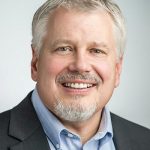
Bill Tumas is the Associate Laboratory Director for Materials, Chemical, and Computational Science at the National Renewable Energy Laboratory (NREL) overseeing NREL’s solar, hydrogen and fuel cells, basic energy sciences, advanced computing, and ARPA-E programs. With over 30 years in industry and at national laboratories, Bill Tumas has led a number of multi-institution and international collaborations. He has also led two Energy Frontier Research Centers on materials discovery: the Center for Next Generation of Materials Design and the Center for Inverse Design. Prior to joining NREL in December 2009, Bill Tumas was at Los Alamos National Laboratory for 17 years, where his last position was as program director for Applied Energy Programs. He has over 65 peer-reviewed publications, 12 patents and has given over 125 invited presentations. He is a fellow of the American Association for the Advancement of Science and serves on several advisory boards for energy-related research. He has contributed to several Basic Energy Sciences reports, including chair for the Roundtable on Liquid Solar Fuels. Tumas received a Bachelor of Arts in chemistry from Ithaca College and a PhD in Organic Chemistry from Stanford University as an NSF and Hertz Fellow, and was a Chaim Weizmann and NIH postdoctoral fellow at Caltech before starting his career at DuPont Central Research.
A. MISSEMER (CNRS-CIRED, FR)
Antoine Missemer is a CNRS researcher currently working at CIRED – Centre international de recherche sur l’environnement et le développement (Paris, France). He holds a PhD in economics from the University of Lausanne. His interdisciplinary work focuses primarily on the history of environmental, energy, and natural resource economics, i.e. on how the economic discipline and economists have approached energy and ecological transition in the past. His publications include ‘Nicholas Georgescu-Roegen, pour une révolution bioéconomique’ (ENS Éditions, 2013), ‘Les Économistes et la fin des énergies fossiles (1865-1931)’ (Classiques Garnier, 2017), and ‘Faire l’économie de l’environnement’ (co-edited with Ève Chiapello and Antonin Pottier, Presses des Mines, 2020). His is currently working, with Marco P. Vianna Franco, on a history of the relationship between economics and the science of ecology, to be published by Routledge in 2022-2023.
H2
T. LEPERCQ (Solairedirect, FR)
C. ANDRONESCU (Duisburg, DE)
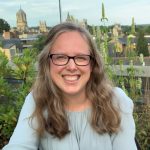 K. VINCENT (Oxford, UK)
K. VINCENT (Oxford, UK)
Kylie Vincent is Professor of Inorganic Chemistry, and Fellow of Jesus College at the University of Oxford. She graduated from the University of Melbourne, Australia (BA/ BSc(Hons), Ph.D. (2004)), before carrying out postdoctoral research at the University of Oxford with Fraser Armstrong from 2002-2007. She then took up a Royal Society University Research Fellowship and RCUK Academic Fellowship in Oxford in 2007/8. She was appointed Associate Professor in 2013 and Professor in 2017. She was denoted the UK’s Science and Technology Woman of the Future in 2011, won the Clara Immerwahr Award for outstanding catalysis research in 2012, and was the overall winner of the Royal Society of Chemistry’s Emerging Technologies Competition in 2013. In 2021 she co-founded the spin-out company HydRegen Ltd where she serves on the Board, and was appointed to a newly-created University role as Academic Champion for Women in Entrepreneurship. She has supervised 17 DPhil students and 42 Masters students to completion. Her research interests include mechanistic studies of small molecule activation in biology, and applications of enzymes in chemical manufacturing.
CH4
M. NICOLAZZI (journalist LIMES, IT)
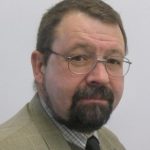 J.P. DATH (Total, FR)
J.P. DATH (Total, FR)
Jean-Pierre Dath earned his master degree in chemistry at the University of Mons, Belgium in 1981. After earning a Ph.D. in science from the same university and doing postdoctoral research as a member of Professor Gerhard Ertl’s team at the Fritz Haber Institut in Berlin, he joined Belgium’s Fund for Scientific Research (FNRS) as a research scientist. He finally resigned to join Fina Research, the forerunner of Total Research & Technology Feluy, to work in oleochemistry, focusing closely on a series of catalytic reactions, mainly to reduce fatty acids to alcohols, hydrogenate sugar and synthesize biodegradable detergents. He transferred afterwards to the Polyolefins Catalysis Division and worked on ethylene and propylene polymerization catalysis, before being appointed Manager of the Catalyst Division in the Refining Catalysis & Processes Department, handling catalysts used in refineries and base chemicals. Accredited as R&C’s catalysis expert in 2013, Jean-Pierre is today R&D Program Manager in the R&D Division to coordinate cross-functional gas-related programs. He is the author / co-author of more than 25 scientific publications and 90 patents. Jean-Pierre is also chairman of the board of CERTECH (« Centre de Ressources Technologiques en Chimie », Seneffe, Belgium), chairman of the board of Meurice R&D (Anderlecht, Belgium) and a former chairman of Société Royale de Chimie (SRC, Belgium).
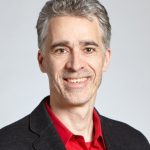 J. VAN BOKOVEN (ETH-Zürich & PSI, CH)
J. VAN BOKOVEN (ETH-Zürich & PSI, CH)
Jeroen A. van Bokhoven completed a degree in chemistry at Utrecht University (Netherlands) in 1995 and went on to obtain a PhD in inorganic chemistry and catalysis from the same university in 2000 (with honours). From 1999 until 2002 he was head of the XAS (X-ray absorption spectroscopy) users – support group at Utrecht University. In 2002, he moved to the ETH, where he worked as researcher in the group of professor Prins. In 2006 he obtained an SNF assistant professorship in the Department of Chemistry and Applied Biology. He was the 2008 recipient of the Swiss Chemical Society Werner Prize. Since 2010, Jeroen A. van Bokhoven has a Chair in Heterogeneous Catalysis at the Institute for Chemical and Bioengineering at ETH Zurich and is Head of Laboratory for Catalysis and Sustainable Chemistry at Paul Scherrer Institute. Van Bokhoven works in the field of heterogeneous catalysis aiming at producing better catalysts and processes that allow sustainable development. Goal is the determination of structure-performance relationships, which aid the design and construction of better catalysts for cleaner and more efficient processes. His main interests are heterogeneous catalysts and developing advanced tools in X-ray spectroscopy and scattering to study the catalyst structure under catalytic relevant conditions.
CO2
V. MASSON-DELMOTTE (CEA, FR)
W. LEITNER (Max Planck Institut – CEC, DE)
NH3
T. M. NGUYEN (Haldor Topsoe, DK)
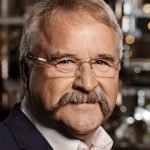 I. CHORKENDORFF (DTU, DK)
I. CHORKENDORFF (DTU, DK)
Ib Chorkendorff is Professor in Heterogeneous Catalysis at DTU-Physics. He earned his PhD in 1985 Odense University Denmark, and after a post-doc at University of Pittsburgh, USA, he was employed in 1987 at DTU where he became full professor in 1999. From 2005-2016 ne was director of Danish National Research Foundation Center for Individual Nanoparticle Functionality (CINF) and from 2016 he has been director of The Villum Center for the Science of Sustainable Fuels and Chemicals (V-SUSTAIN). He has author or coauthored more than 380 scientific papers, 22 patents and one textbook “Concepts of Modern Catalysis and Kinetics”. Professor Chorkendorff’s work is a surface science approach to heterogeneous catalysis including thermal, electro-, and photo-catalysis. He has since 2017 been listed as Highly Cited Researcher (ISI) (top 1%). Ib Chorkendorff’s research activities focus on finding new catalysts for improving sustainable energy production/conversion and for environmental protection. He is co-founder of three start-up companies RENCAT APS, HPNOW APS and Spectroinlets APS.
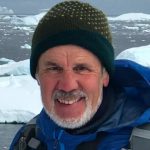 W. STEFFEN (Stocholm Resilience Institute SRI and ANU, Canberra Au)
W. STEFFEN (Stocholm Resilience Institute SRI and ANU, Canberra Au)
Will Steffen is an Earth System scientist. He is a Councillor on the publicly-funded Climate Council of Australia that delivers independent expert information about climate change. He is also an Emeritus Professor at the Australian National University (ANU); Canberra, a Senior Fellow at the Stockholm Resilience Centre, Sweden; and a member of the Anthropocene Working Group. From 1998 to mid-2004, Steffen was Executive Director of the International Geosphere-Biosphere Programme, based in Stockholm. His research interests span a broad range within Earth System science, with an emphasis on sustainability and climate change.
(Bio)Polymers
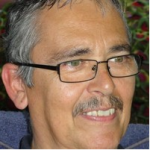 N. FRIEDERICHS (Sabic, NL)
N. FRIEDERICHS (Sabic, NL)
After completing his BSc educations in both Organic Chemistry as well as Process Technology, Nic. Friederichs started his industrial career in 1986 at DSM, the Netherlands, working on organometallic catalysts for the production of polyolefins. After spending five years at a DSM/ExxonMobil joint venture called DEX-Plastomers, working on the implementation of so-called metallocenes in commercial polyolefin production, he spent another 2 years at DSM and since 2002 he has been working for SABIC, after SABIC’s acquisition of DSM’s petrochemicals division. Over the years, he has been involved in R&D for a wide variety of polyolefins, including polyethylene, polypropylene, EPDM and UHMWPE, focusing on the interplay between catalysis, process technology and material properties. Currently he is a Chief Scientists within the Corporate R&D department of SABIC, focusing on polyolefins, still the most versatile class of polymers.
E. GROPPO (Torino, IT)
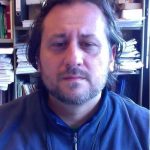 F. PICCHIONI (Groeningen, NL)
F. PICCHIONI (Groeningen, NL)
Prof. dr. Francesco Picchioni received his MSc (1996) and PhD (2000) degrees at the University of Pisa (Italy) working in the group of prof. F.Ciardelli on polymer functionalization and blending. After a postdoc (2000-2002) at the Technical University of Eindhoven (TUe, The Netherlands), he joined the University of Groningen (RuG, The Netherlands) first as Assistant and later as Associate (2008-2013) and full Professor (since 2014). He currently chairs the research group of Product Technology, which comprises at the moment 1 Associate Professor, 4 Assistant Professors and about 35 PhDs and PostDocs. His research interests include bio-based materials, thermally-reversible networks and material recycling.
K. BARTA (U. Graz, Au)
Conclusion
B. WECKHUYSEN (Utrecht, NL)


